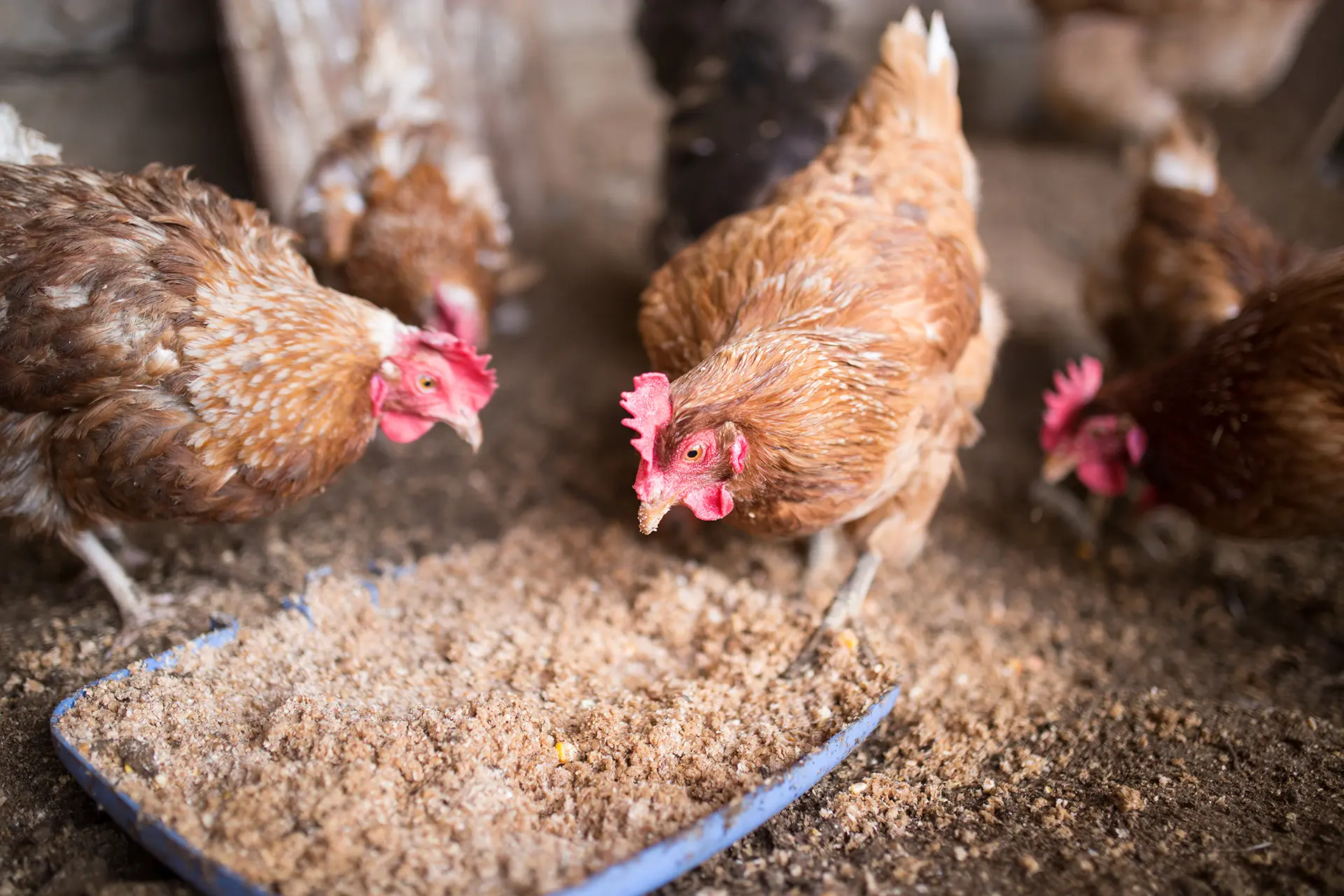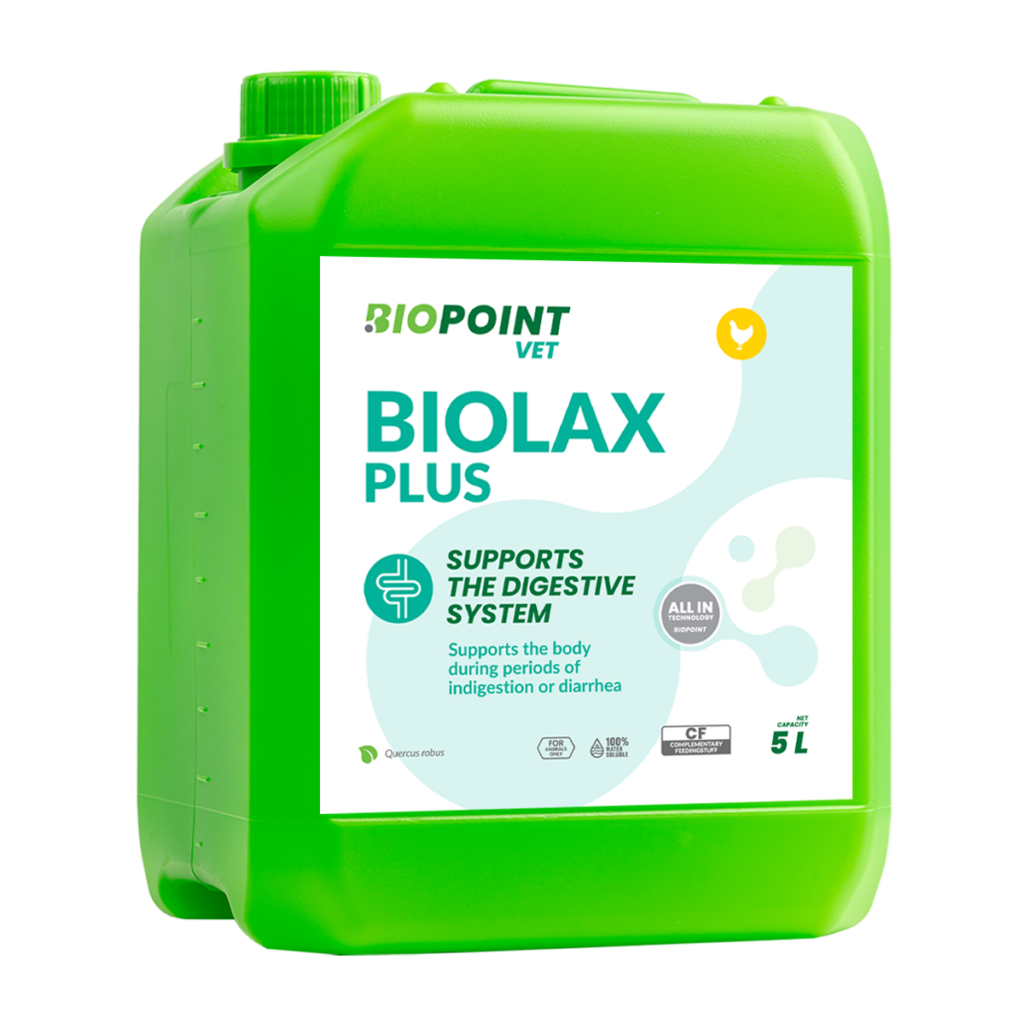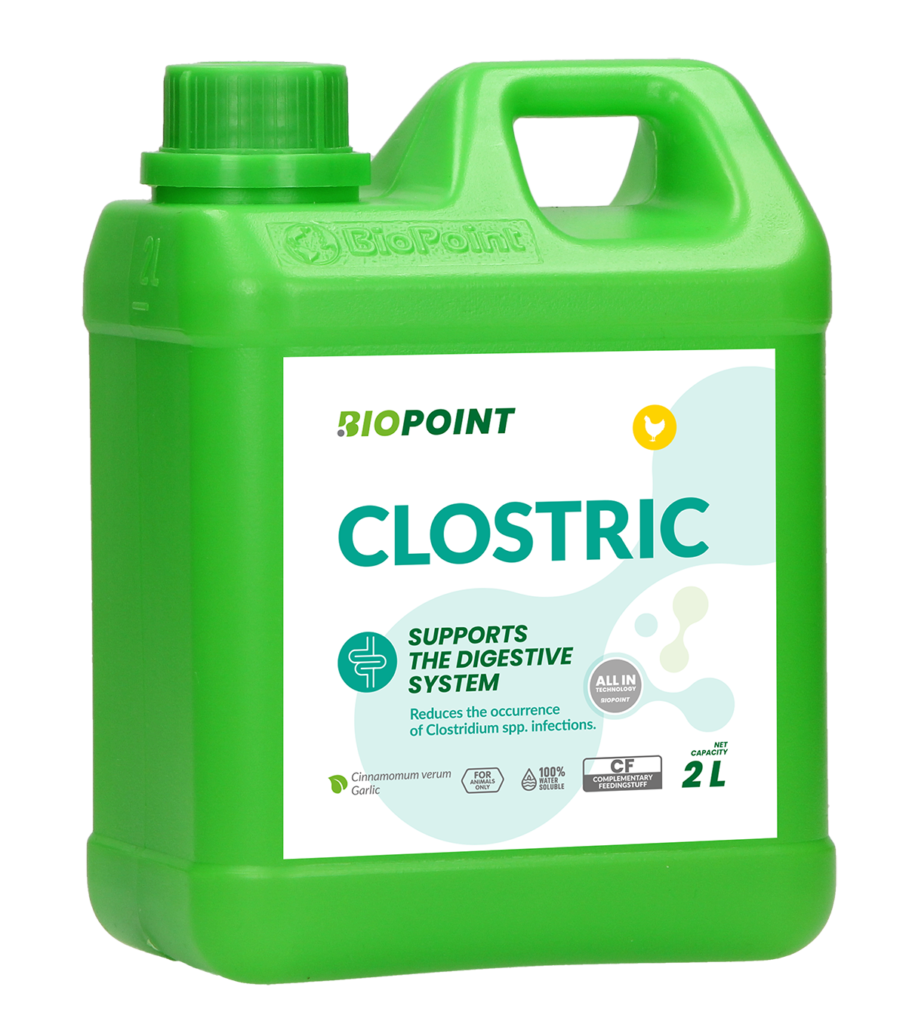
Articles / Films
Diarrhea in poultry – prevention is better than cure

Diarrhea in poultry, particularly in hens, is a common but complex issue that significantly affects the health and productivity of the flock. Understanding the nature of this ailment is crucial for effective management and prevention. Diarrhea in hens is characterized by the abnormal frequency and liquidity of fecal discharges, which can be a clear indicator of underlying health issues. As such, it is important for poultry farmers to recognize the early signs of this condition to mitigate its impacts efficiently.
Causes of Diarrhea in Poultry
One significant source of diarrhea in poultry is anaerobic bacteria, particularly from the Clostridium spp family, which causes foamy diarrhea in hens. These bacteria thrive in environments lacking in oxygen and can produce toxins that severely affect the intestinal health of the birds. In addition to bacterial infections, other factors such as viral diseases, parasites, improper feeding practices, and environmental stress can also lead to diarrhea. Identifying the specific cause is essential for targeting treatment and prevention strategies effectively.
Symptoms and Health Impacts
The symptoms of diarrhea in hens can vary but typically include watery or unusually loose stools, which may contain blood or mucus. Affected birds often show signs of lethargy, reduced appetite, and decreased egg production. The health impacts are significant, leading to dehydration, nutrient malabsorption, and a weakened immune system, which makes the birds more susceptible to further infections and diseases. Chronic cases of diarrhea can lead to severe health complications or even death, making early detection and treatment critical.
Effective Prevention Strategies
Preventing diarrhea in poultry involves a multi-faceted approach focusing on enhancing overall flock health and resilience. Effective prevention strategies are built on the pillars of good management practices, including biosecurity measures, proper nutrition, and environmental control. Implementing these strategies helps in creating a stable and healthy environment for the birds, reducing the incidence and severity of diarrhea outbreaks.
Daily Observation and Early Detection
Daily observation of the flock plays a pivotal role in the early detection of diarrhea. Poultry farmers should conduct regular checks to monitor the health status of their birds, paying close attention to their fecal output, behavior, and feeding patterns. Early detection allows for timely interventions, which can significantly curtail the spread of infections and minimize economic losses. Educating farm workers on the signs of diarrhea and ensuring consistent monitoring routines are essential components of an effective health management program.
Hygiene and Cleanliness Management in the Coop
Maintaining hygiene and cleanliness in the coop is fundamental in preventing the spread of diarrhea-causing pathogens. Regular cleaning and disinfecting of the living quarters, feeding troughs, and water stations help eliminate harmful microbes from the environment. Proper waste management and ventilation systems are also crucial in maintaining the overall health of the coop. By establishing strict hygiene protocols, farmers can significantly reduce the risk of diarrhea and other infectious diseases.
The Importance of Diet and Nutrition in Prevention
The diet and nutrition of poultry have a direct impact on their gastrointestinal health. Feeding a balanced diet rich in essential nutrients helps strengthen the birds' digestive systems and immune responses. It is important to ensure that the feed is free from contaminants and is stored properly to prevent spoilage and mold growth. Incorporating probiotics and adequate fibers in the diet can also support gut health and prevent the occurrence of diarrhea.
Diarrhea in chickens can be defeated effectively with herbal support
BioPoint harnesses the power of natural, herbal solutions to combat indigestion and diarrhea in poultry, ensuring a holistic approach to animal health. These solutions are particularly valuable when antibiotics are not an option, such as during the laying period or close to the slaughter date. Using herbal treatments not only supports the health of the birds but also adheres to the increasing demand for antibiotic-free poultry products. By relying on nature's own remedies, BioPoint provides a comprehensive support system that helps maintain the health and productivity of poultry flocks without compromising their natural immune systems or the environment.
Herbal and Natural Solutions from BioPoint
BioPoint offers specialized products like Biolax Plus and Biolax V Plus, which are formulated from a blend of potent herbs known for their beneficial effects on poultry health. Biolax Plus is rich in tannins, known for their antioxidant and anti-inflammatory properties, making it ideal during the initial wet litter period. The active ingredients in Biolax Plus support the digestive system, helping to remove toxins and prevent dehydration, which is crucial during periods of high water loss. Additionally, the presence of tannins stimulates the production of digestive enzymes, enhancing nutrient absorption and improving overall hen health.
Biolax V Plus takes these benefits further by incorporating agrimony extract, which increases the tannin content and hence the efficacy of the treatment. This product is specifically designed to offer comprehensive support when diarrhea strikes, ensuring the birds maintain optimal health. Dandelion extract, another critical component, supports liver function and promotes bile production, which is essential for digestion and nutrient absorption. Together, these formulations provide a robust defense against digestive disorders, bolstering the health and resilience of the flock.
These natural and herbal solutions from BioPoint not only treat the symptoms of diarrhea but also contribute to a healthier, more sustainable approach to poultry farming. By integrating these products into regular poultry care, farmers can significantly reduce the occurrence of diarrhea and improve the overall well-being of their birds.
Clostridium in poultry? We have a solution!
Clostridium spp. are notorious for causing severe infections in poultry, leading to symptoms such as diarrhea, which can devastate a flock if not promptly addressed. BioPoint's response to this challenge is Clostric, a targeted herbal remedy designed to combat these bacteria effectively. Clostric works by disrupting the bacterial cell membranes and metabolic functions, thereby halting the spread and severity of the infection. This rapid-action formula can yield noticeable results within 1 to 3 days after the onset of treatment, providing a swift solution to outbreaks of Clostridium-related diarrhea.
The innovative composition of Clostric not only fights the bacteria but also boosts the overall health of the birds by improving their appetite and enhancing the digestion and absorption of feed ingredients. This dual-action benefit is crucial for restoring and maintaining the health of infected poultry, ensuring they return to optimal productivity quickly. Clostric is particularly beneficial in scenarios where the use of antibiotics is restricted or undesirable, making it an essential tool in the natural management of poultry health.
Take Action Against Poultry Diarrhea Now
Combating diarrhea in poultry is not just about addressing the current symptoms but preventing future outbreaks and ensuring the long-term health of your flock. With BioPoint's range of natural, effective solutions, you have the tools at your disposal to tackle this challenge head-on. Don’t wait for the health of your poultry to deteriorate further. Act now by incorporating BioPoint’s innovative products like Clostric, Biolax Plus, and Biolax V Plus into your poultry care regimen.
Investing in these solutions means investing in the health and productivity of your poultry. Reach out to our team for personalized advice and begin your journey towards a healthier, more resilient flock today. Let BioPoint help you set a new standard in poultry care, ensuring your birds are not only surviving but thriving.

